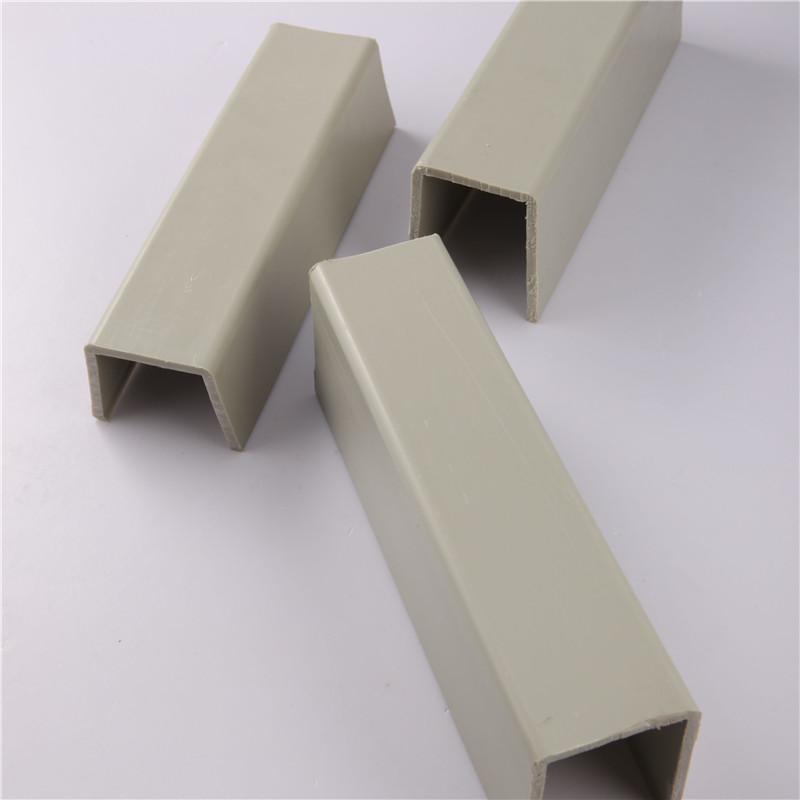nov. . 05, 2024 10:16 Back to list
pvc water pipe
The Versatility and Advantages of PVC Water Pipes
Polyvinyl chloride (PVC) has become increasingly popular as a material for water pipes due to its numerous advantages over traditional piping materials like metal and concrete. From residential installations to extensive municipal systems, PVC water pipes offer a reliable and efficient solution for transporting water.
Durability and Longevity
One of the primary benefits of PVC water pipes is their remarkable durability. PVC is resistant to corrosion and chemical damage, making it suitable for a wide range of water types, including those that are acidic or alkaline. Unlike metal pipes, which can succumb to rust and degradation over time, PVC pipes maintain their integrity for many years, often exceeding 50 years of service life. This longevity translates to reduced maintenance costs and fewer replacements, which is particularly advantageous for municipalities and homeowners alike.
Lightweight and Easy to Handle
Another significant advantage of PVC pipes is their lightweight nature. This characteristic simplifies transportation and handling, reducing labor costs during installation. Unlike heavy metal pipes that require cranes or other machinery for movement, PVC pipes can be easily lifted and maneuvered through tight spaces, facilitating efficient installation even in challenging environments. This ease of handling is especially beneficial for DIY projects and smaller plumbing jobs.
Cost-Effective Solution
The production and material costs associated with PVC water pipes are generally lower than those for metal or concrete alternatives. This affordability extends to installation, as the lightweight nature of PVC reduces labor costs, and fewer tools are required for installation. Additionally, the long lifespan and low maintenance requirements mean that property owners can save money over time, making PVC pipes a cost-effective choice for water transportation.
pvc water pipe

Resistance to Biological Contamination
PVC pipes are non-toxic and do not leach harmful chemicals into the water. This aspect is crucial for maintaining water quality, especially in drinking water systems. Traditional metal pipes can sometimes leach metals or lead, potentially contaminating the water supply. PVC, on the other hand, is resistant to biological growth and can help prevent the development of algae and mold within the piping system, ensuring that water remains clean and safe for consumption.
Versatility in Applications
PVC water pipes are incredibly versatile and can be used in a variety of applications. They are suitable for residential plumbing, irrigation systems, and municipal water supply networks. Their ability to withstand different pressures makes them ideal for both above-ground and underground installations. Additionally, PVC pipes can be easily joined using various methods, including solvent cementing, which creates strong, leak-free connections.
Environmentally Friendly Options
As awareness of environmental issues grows, many manufacturers have begun producing PVC pipes with sustainability in mind. These pipes can often be recycled, which minimizes waste and promotes a circular economy. Moreover, the energy required to produce PVC is less than that required for metals, making it a more environmentally friendly option overall.
Conclusion
In summary, PVC water pipes offer a plethora of advantages that make them a preferred choice for water transportation. Their durability, lightweight nature, cost-effectiveness, resistance to biological contamination, versatility, and environmentally friendly characteristics position them as a modern solution for both residential and commercial applications. As technology progresses, the material continues to improve, ensuring that PVC pipes will remain a staple in the plumbing industry for years to come. Investing in PVC water pipes is not just a choice for today but a long-term solution for a sustainable and efficient water management system.
-
High-Quality PPR Pipes and Fittings Durable ERA PPR & PVC PPR Solutions
NewsJul.08,2025
-
Black HDPE Cutting Board - Durable, Non-Porous & Food Safe HDPE Plastic Cutting Board
NewsJul.08,2025
-
High-Quality CPVC Panel Durable HDPE & PVC Panels Supplier
NewsJul.08,2025
-
Double PE Welding Rod Supplier - High Strength, Durable & Versatile Welding Solutions
NewsJul.07,2025
-
High-Quality PVC-O Pipe Supplier Durable 75mm PVC Pipe & Connections Leading PVC Pipe Company
NewsJul.07,2025
-
HDPE Drainage Pipe Supplier – Durable & Corrosion-Resistant Solutions
NewsJul.06,2025

